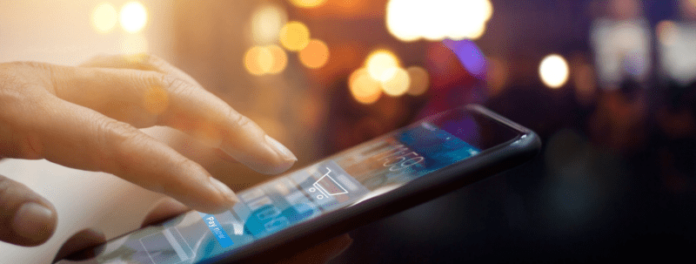The digital hygiene of Poles needs improvement. This especially applies to young adults aged 18 to 24 – with as much as 1/5 of them using the phone for more than 6 hours a day. They often aren’t even aware of this, as 78% of Poles do not keep track of how much time they spend in front of a smartphone screen. We frequently grab our phones lured by the sound of a notification and start messaging or scrolling through social media. Almost half of us do this in every spare moment, and 1/4 do so during work hours or at school – according to a study by Huawei CBG Polska. We also neglect digital hygiene early in the morning and before going to sleep. Such habits may directly lead to overstimulation, with an information overloaded world we constantly absorb. This contributes to information stress, which decreases our functionality and worsens health.
The mobile revolution of the last two decades means we can access countless sources worldwide at the pocket’s reach. What follows is an equally endless number of notifications sent by various apps, news platforms, or social media, on top of traditional media and advertisements we’re already surrounded by. It turns out that only 15% of Poles use their smartphones for less than an hour a day, mainly people over 50, and 46% of us spend between 1 and 3 hours on our phones. From 3 to 6 hours is spent by 22% of respondents, and as many as 8% spend more than 6 hours. Younger users aged 18-24 are the most attached to their smartphones, with 43% of them using them from 3 to 6 hours a day, and 20% beyond that threshold. We very often reach for our phones due to popping up notifications. After those for phone calls and SMSes (over 60% of respondents), they are dominated by those from messengers (59%) and social media (50%). Notifications from news portals (32%) and work email (13%) follow.
When we reach for our mobiles, we usually use messaging apps. Poles simply love them, which is confirmed by numbers – 4 out of 5 of us use the most popular Messenger (82%), Whatsapp is used by over half (56%), and a third of adults in Poland use Skype. As many as 47% of respondents use messengers in every spare moment. And again, this applies most to the youngest surveyed group – 68%. Every fourth of us continuously checks messengers at work – whether it’s during a break or while doing business tasks. Nearly half of us communicate with friends after returning home (45%), and 15% on the way to work. Although using smartphones before sleep and immediately after waking up is not recommended, 25% and 18% do so, respectively. It is also common to use phones when out with others, admitted by 28% of respondents.
We also frequently use social media. We prefer using them after returning home (64%). In our homes, we particularly focus on watching YouTube videos (61% of those using at home), and browsing Facebook (53%) and Instagram (33%). The next most popular response was scrolling through social media at any free time (49%) and before sleeping (46%). The next most popular answers are during breaks at work or school (a total of 40% of us, of which 50% use Facebook, 32% YouTube, 30% Instagram) – and, interestingly, during work or school (23%). In this group, while performing tasks, almost half of people (47%) browse Facebook, 33% Instagram, and 29% YouTube.
On managing the constant inflow of informational stimuli, 46% of us have permanently turned off unwanted notifications, and 34% temporarily enable do not disturb mode when needing peace, reducing them to zero. 1 in 4 users (26%) do not attempt to reduce the broad stream of various signals from notifications. Mobile device manufacturers offer users features aimed at their wellbeing in using the network and device, such as HUAWEI Digital Hygiene. An overwhelming majority of Polish smartphone owners – as many as 78% – do not use them. But this could be a useful solution in the fight against overstimulation, fatigue, and poorer well-being caused by excessive contact with informational stimuli.
“Information stress leads to sleep disorders, low mood, or concentration problems, and 61% of us experience this. Unfortunately, as many as 3/4 of Poles do not control how much time they spend in front of a smartphone screen, and 1/4 do not reduce the influx of notifications only to the necessary minimum. So we want to raise users’ awareness of possible hazards from not maintaining digital hygiene and show them how to take care of it more effectively” – says Dorota Rakowska, Marketing Director at Huawei CBG Polska.
[1] The study was conducted in July 2023 commissioned by HUAWEI CBG Polska by SW Research using the CAWI method on a representative group of 1073 people.


















